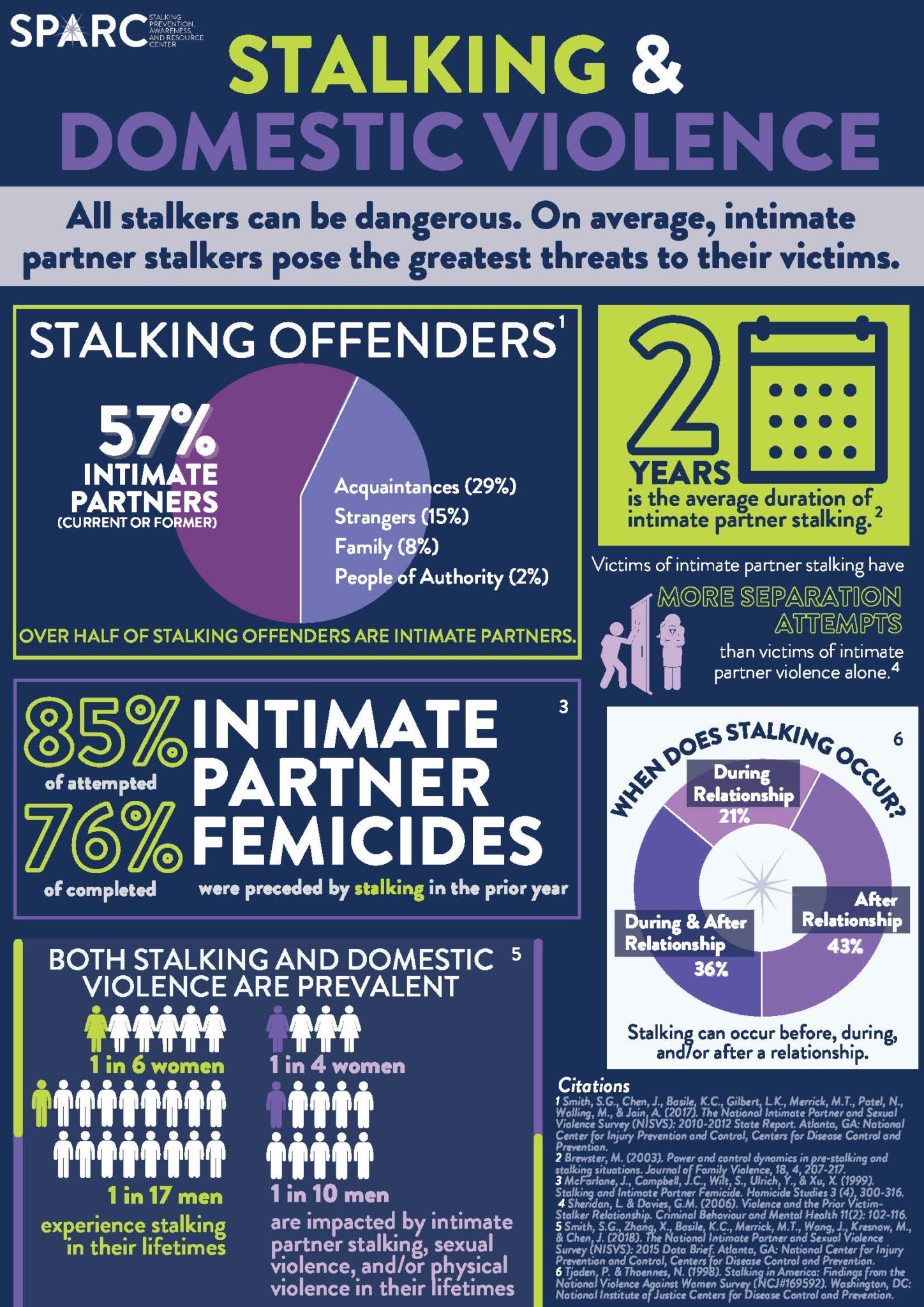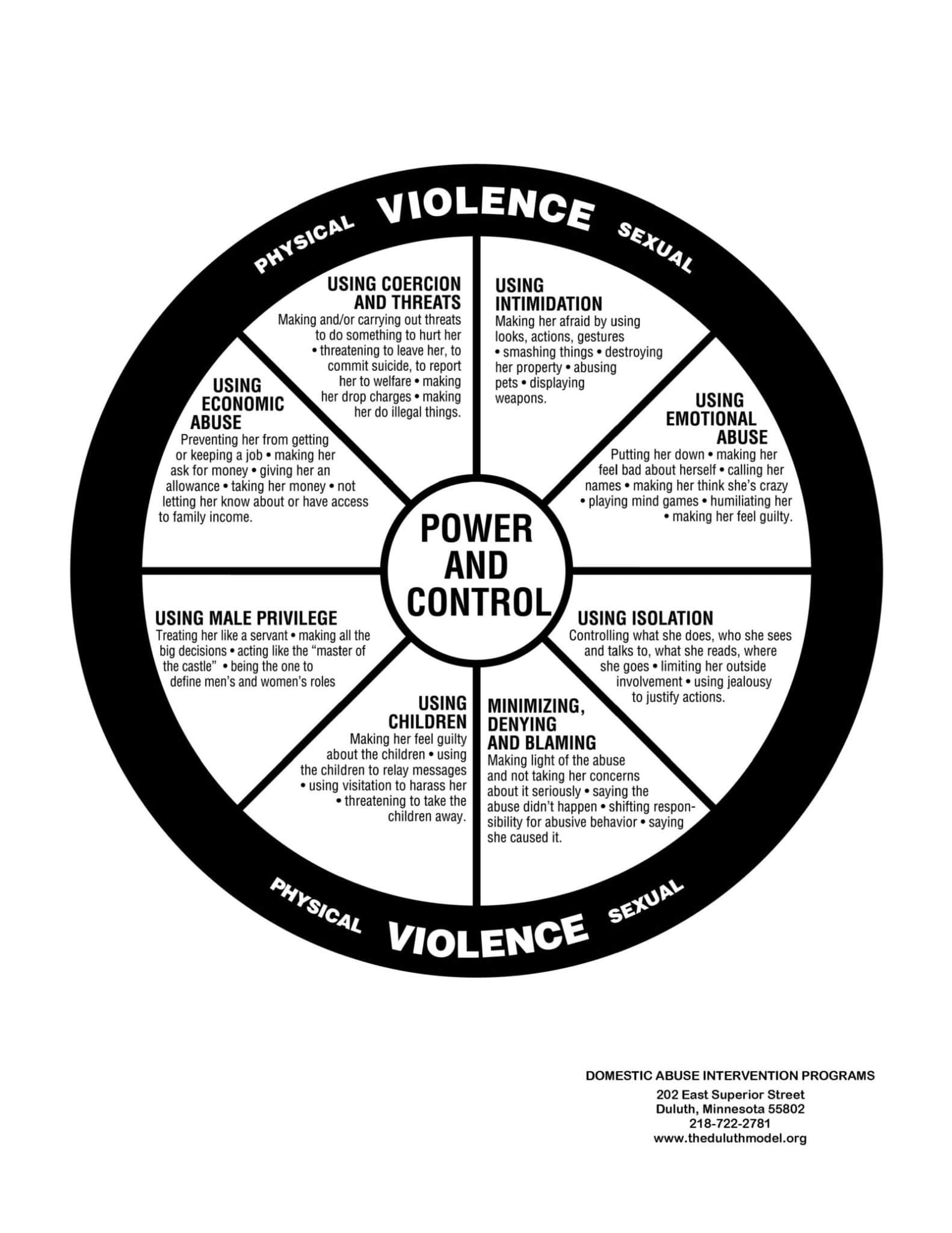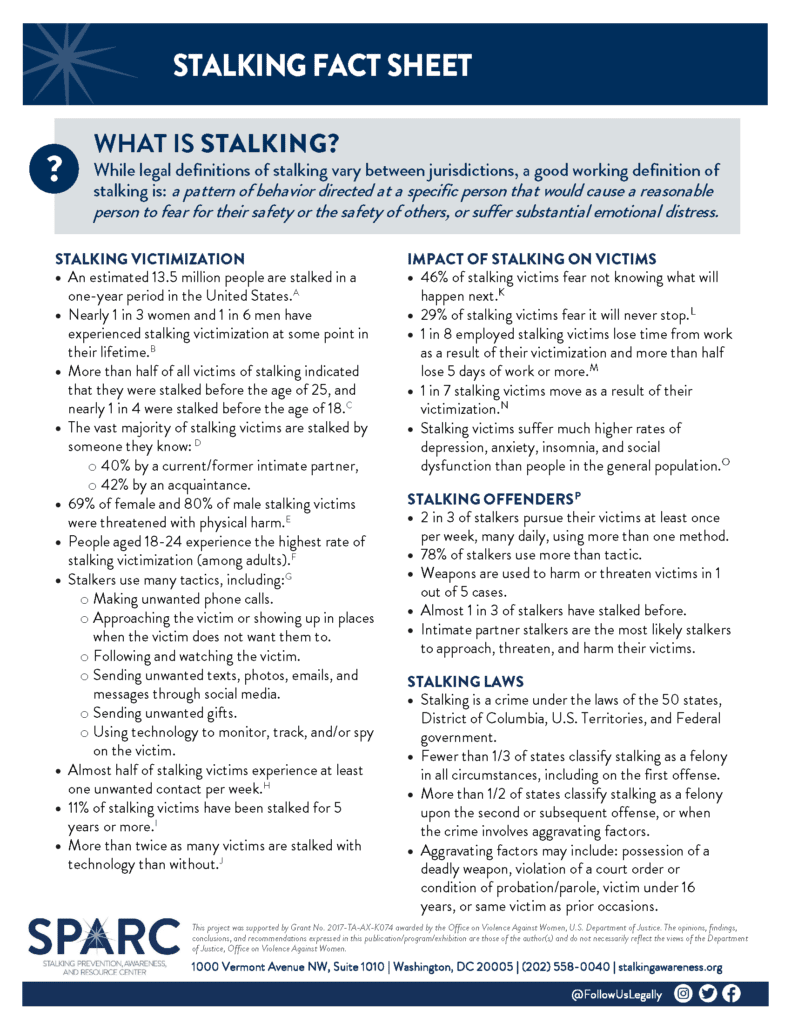Stalking
To learn more about Stalking from SPARC, the Stalking Prevention, Awareness and Resource Center. Click the link below.
Domestic Violence
Anyone can be a victim of domestic violence. There is NO "typical victim." Victims of domestic violence comes from all walks of life, varying age groups, all backgrounds, all communities, all education levels, all economic levels, all cultures, all ethnicities, all religions, all abilities, and all lifestyles.
Victims of domestic violence do not bring violence upon themselves, they do not always lack self-confidence, nor are they just as abusive as the abuser. Violence in relationships occurs when one person feels entitled to power and control over their partner and chooses to use abuse to gain and maintain that control. In relationships where domestic violence exists, violence is not equal. Even if the victim fights back or instigates violence in an effort to diffuse a situation. There is always one person who is the primary, constant source of power, control, and abuse in the relationship.


How Does Abuse Affect Victims?
Domestic violence can affect all aspects of a victim's life. When abuse victims are able to safely escape and remain free from their abuser, they often survive with long-lasting and sometimes permanent effects to their mental and physical health; relationships with friends, family, and children; their career; and their economic well-being.
Victims of domestic violence may experience an array of emotions and feelings from the abuse inflicted upon them by their abuser, both within and following the relationship. They may also resort to extremes in an effort to cope with the abuse.
Victims of domestic violence may:
- Want the abuse to end, but not the relationship
- Feel isolated
- Feel depressed
- Feel helpless
- Be unaware of what services are available to help them
- Be embarrassed of their situation
- Fear judgment or stigmatization if they reveal the abuse
- Deny or minimize the abuse or make excuses for the abuser
- Still love their abuser
- Withdraw emotionally
- Distance themselves from family or friends
- Be impulsive or aggressive
- Feel financially dependent on their abuser
- Feel guilt related to the relationship
- Feel shame
- Have anxiety
- Have suicidal thoughts
- Abuse alcohol or drugs
- Be hopeful that their abuser will change and/or stop the abuse
- Have religious, cultural, or other beliefs that reinforce staying in the relationship
- Have no support from friends of family
- Fear cultural, community, or societal backlash that may hinder escape or support
- Feel like they have nowhere to go or no ability to get away
- Fear they will not be able to support themselves after they escape the abuser
- Have children in common with their abuser and fear for their safety if the victim leaves
- Have pets or other animals they don't want to leave
- Be distrustful of local law enforcement, courts, or other systems if the abuse is revealed
- Have had unsupportive experiences with friends, family, employers, law enforcement, courts, child protective services, etc. and believe they won't get help if they leave or fear retribution if they do (e.g. they fear losing custody of their children to the abuser)
These are among the many reasons victims of domestic violence either choose to stay in abusive relationships or feel they are unable to leave.

